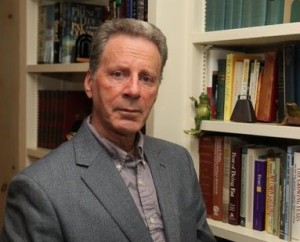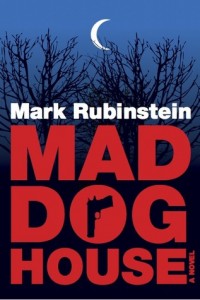 Guest post by Dr. Mark Rubinstein
Guest post by Dr. Mark Rubinstein
At times, we all take the people we love for granted. At least, I did … until the gift.
The old expression “you don’t know what you have until you lose it” really hit home for me last year, when my wife of nearly thirty years, was diagnosed with a rare and very aggressive form of uterine cancer. She’s seven years my junior; has always been in excellent health; and never had a physical complaint in all the years I’ve known her. The diagnosis hit us like a bolt of lightning.
Before her surgery, still reeling from the impact of the diagnosis, I was in a supermarket, picking up a can of plum tomatoes which Linda needed to make pasta sauce for that night’s dinner. (Yes, she continued to cook and do everything else throughout the many months of her treatments.) Linda always reminded me to check the expiration date on products, and I did just that. As I read the September 2014 date on the can, I was seized by a terrible fear: what would Linda’s expiration date be? Statistics for her rare kind of cancer give a 30% chance for five-year survival. Would my wife be fortunate enough to have caught this beast before it spread? Tears welled in my eyes as I stood in the aisle with can in hand.
As I read the September 2014 date on the can, I was seized by a terrible fear: what would Linda’s expiration date be?
Maybe I was getting a bit morbid, but who wouldn’t under such circumstances? Your previously healthy and optimistic wife, someone living life to the fullest, is diagnosed with a disease so rare there’s no specific treatment protocol for it. It’s treated as if it’s ovarian cancer, but that’s a shotgun approach. It’s seen so infrequently, doctors have to do something, and hope for the best.
So maybe there was ample reason to feel morbid.
But Linda had a different view, and she made it very clear, “I’m not going to let cancer run my life or define who I am. I’m going to live every day, and keep doing what I always do.”
We began dealing with the treatments together. First, there was the surgery, which involved the removal of so many internal organs; it’s called “debulking.” Linda went through it with flying colors, and to the doctors’ amazement, was out of bed and walking the hospital corridors the very next day. Two days after that, she was home and functioning, despite discomfort.
I cut back on my office schedule for the chemotherapy. Over a four-month period, Linda received toxic infusions every three weeks. She lost her hair and experienced various other side effects, but kept going. We persevered together.
Next came radiation. Although the sessions themselves were uncomfortable, there were only three, and she fared quite well.
To the outside world, it would appear our lives are back to normal, and we’ve resumed our usual routines; but they’re not, and we have changed.
We received encouraging news. It would appear the cancer was caught in its earliest stages, and Linda’s prognosis is guardedly excellent. We’re one year post diagnosis, and her scans and tests are all normal.
To the outside world, it would appear our lives are back to normal, and we’ve resumed our usual routines; but they’re not, and we have changed. Facing the challenges and fears of this past year has brought us closer. We see each day together as a gift. Our appreciation of the simple things of life is heightened, whether it’s a moment shared watching our dogs play, or the enjoyment taken in a meal before the fireplace.
True, Linda was the patient and faced her situation with unwavering optimism and courage; but her cancer struck both of us. And, it impacted our lives and relationship, very deeply. It made us stop amidst our nearly thirty years of married life, and recommit to each other in a way that would never have occurred, if not for illness.
In a way, looking back on it, cancer was a gift.
 Mark Rubinstein grew up in Brooklyn, New York. After earning a degree in Business Administration at NYU, he served in the U.S. Army as a field medic. After his discharge, he went to medical school, became a physician, and then a psychiatrist. As a forensic psychiatrist, he was an expert witness in many trials. As an attending psychiatrist at New York Presbyterian Hospital and a Clinical Assistant Professor of Psychiatry at Cornell, he taught psychiatric residents, psychologists, and social workers while practicing psychiatry. Before turning to fiction, he coauthored five books on psychological and medical topics. He lives in Connecticut with as many dogs as his wife will allow in the house. He still practices psychiatry and is busily working on other novels.
Mark Rubinstein grew up in Brooklyn, New York. After earning a degree in Business Administration at NYU, he served in the U.S. Army as a field medic. After his discharge, he went to medical school, became a physician, and then a psychiatrist. As a forensic psychiatrist, he was an expert witness in many trials. As an attending psychiatrist at New York Presbyterian Hospital and a Clinical Assistant Professor of Psychiatry at Cornell, he taught psychiatric residents, psychologists, and social workers while practicing psychiatry. Before turning to fiction, he coauthored five books on psychological and medical topics. He lives in Connecticut with as many dogs as his wife will allow in the house. He still practices psychiatry and is busily working on other novels.








